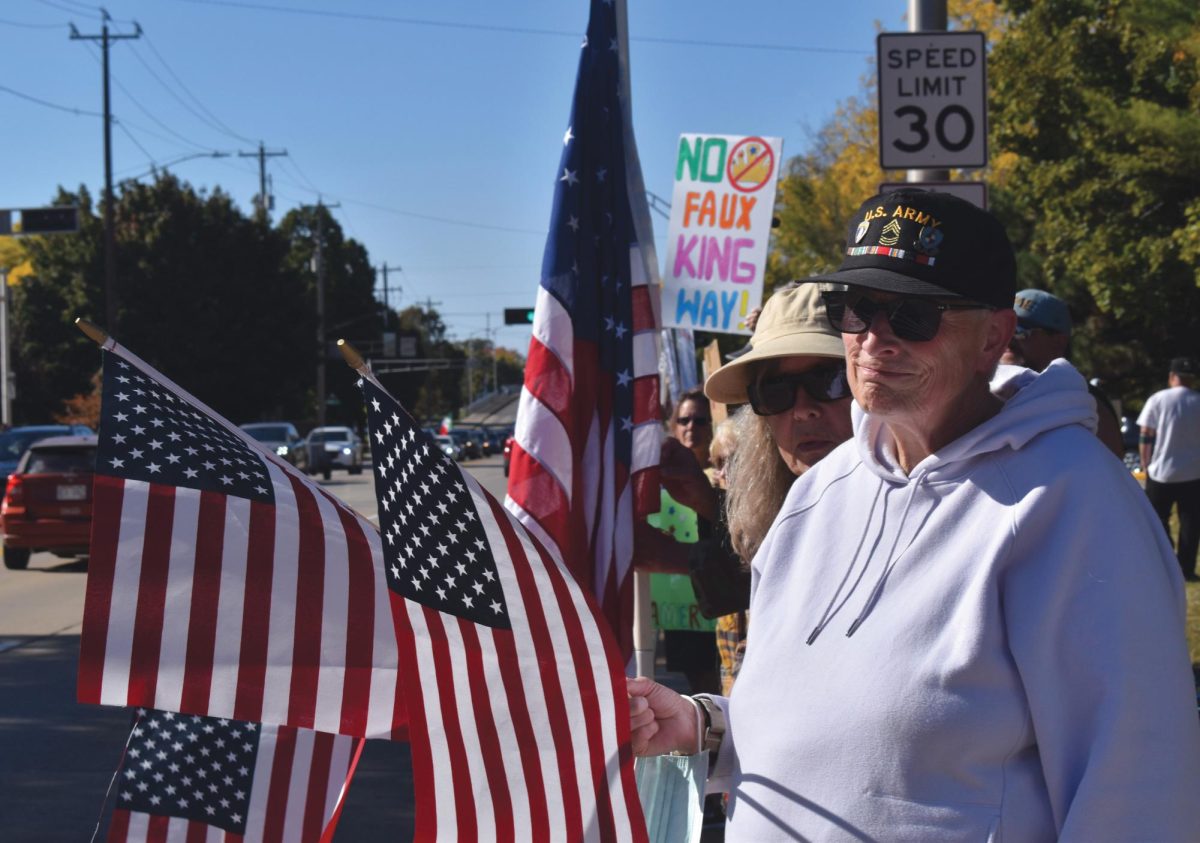The University of Wisconsin System is suing former University of Wisconsin Oshkosh Chancellor Richard Wells and former Vice Chancellor Thomas Sonnleitner, arguing their transfer of funds from UW Oshkosh to the University of Wisconsin Oshkosh Foundation was illegal.
“Sonnleitner and Wells converted property of the [UW System], including its money and its credit, by intentionally transferring [the UW System’s] money and credit to the Foundation,” the lawsuit stated.
Court documents state that, from 2010-2014, Wells and Sonnleitner supported the Foundation by helping fund five projects: the Best Western Hotel and Conference Center, the Witzel biodigester, the Rosendale biodigester, the Alumni Welcome and Conference Center and the Oshkosh Sports Complex.
According to the lawsuit, the Wisconsin State Constitution prohibits the University from transferring funds to an entity like the Foundation for such purposes.
Wells and Sonnleitner were responsible for $11.27 million in transfers from the University to the Foundation, while $4.52 million is yet to be repaid, with the hotel project being the only one paid off in full, according to the lawsuit.
According to the Department of Justice-commissioned report by retired Dane County Circuit Court Judge Patrick Fielder, Wells and Sonnleitner had no legal authority to sign memoranda of understanding (MOUs), which bind the University to cover the Foundation if they defaulted on their loans.
According to a timeline from the UW System article, former UWO Foundation President Art Rathjen informed Chancellor Andrew Leavitt the Foundation may need assistance with debt payment on the Alumni Welcome and Conference Center (AWCC) in the coming year.
Leavitt said he went to UW System President Raymond Cross when he found potentially inappropriate transactions between UWO and the Foundation, according to a statement from January 2017.
“In late April, the UW System review identified documents signed by Wells and Sonnleitner that were unlawful,” Leavitt said. “I placed Sonnleitner on paid administrative leave on May 11, 2016, while the review was taking place (Sonnleitner subsequently retired on May 30).”
Leavitt said, in a statement, that Wells was Sonnleitner’s supervisor at the time, and neither one of them properly recorded the transfers in UW Oshkosh’s accounting records.
“The UWO Foundation was established to provide support to the University, and funding should have flowed only from the Foundation to UW Oshkosh,” Leavitt said. “Not the other way around.”
Leavitt said Wells and Sonnleitner executed illegal guarantees, known as MOUs, pledging UW Oshkosh’s financial support for the Foundation’s bank loans related to the projects.
“The guarantees asserted that UW Oshkosh would make debt payments for the UWO Foundation if the Foundation could not meet its financial obligations,” Leavitt said. “The Wisconsin Constitution and UW System policies do not allow a public entity to support a private organization.”
The Fielder report states that it is essential to note the University and the Foundation Board are separate and distinct entities and Wells and Sonnleitner bear sole responsibility for the allegations.
“The Foundation Board exercised due diligence in addressing the issue of legal authority with Wells and Sonnleitner,” the Fielder report states. “The Board’s reliance upon the oral and written representations by Wells and Sonnleitner was in good faith. The Board has no culpability whatsoever for the actions of Wells and Sonnleitner, and the Board cannot be faulted in anyway.”
The suit filed by the UW System states Wells and Sonnleitner are responsible for all damages suffered by the UW System and the University, along with all future penalties the UW System may face and the cost of the lawyers and investigation.
Leavitt said he will take action to make sure these types of activities do not happen again on the UWO campus.
“On behalf of your leadership team, I want to apologize for what has transpired,” Leavitt said. “It is unacceptable to violate the public trust and to act without regard for ethics and the law. We must be ethical, accountable and transparent in our service to students.”








